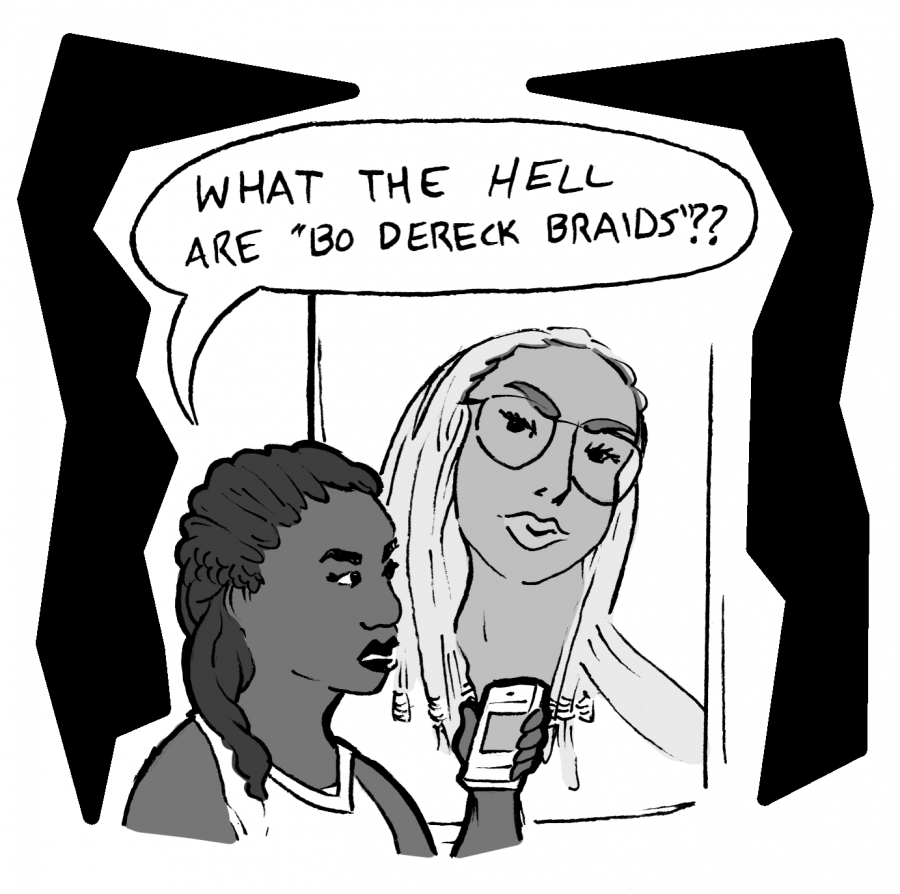The Kardashian family is known for wearing cornrows and braids, and subsequently receiving backlash from the black community. Most recently, Kim Kardashian posted an image of herself in Fulani braids with the caption “Bo Kardashian,” inserting her name in the popularized term for the braids “Bo Derek Braids.” The insertion of her maiden name into an already offensive term for the braids is where she crossed the line.
Fulani braids originated from the Fulani tribe in West Africa and the Sahel region. It’s a traditional hairstyle in which long hair is cornrowed and hanged or looped to the side of the head with embellishments like beads and cowrie shells. The hairstyle has been proudly passed down among generations of young women and girls to protect and style their hair, not to adhere to a trend.
White American film actress Bo Derek popularized and capitalized on the hairstyle in her 1979 movie, “10.” That’s where the hairstyle got its label “Bo Derek Braids.” The name passes ownership of a traditional hairstyle and minimizes it, leaving only a trend to look more exotic.
I personally have no problem with Bo Derek or Kim Kardashian wearing Fulani braids or any other cornrow hairstyle. When done with cultural knowledge, hairstyles and other cultural aspects can be shared respectfully.
But Kardashian and Derek failed to educate themselves enough to know the real name of the braids. For example, Bo Derek attempted to defend the socialite and disclosed where her inspiration stemmed from saying, “I copied it from Ann-Margret’s backup singer from her Vegas Show.” She goes on to say that “we all copied Queen Nofretari.”
The blasé claim by Bo Derek doesn’t account for the fact that the hairstyle is more than just a trend, or that black women are still facing repercussions when they wear it. The use of the co-opted label blurs the line between a trend and protective hairstyle, all the while perpetuating the notion that “it’s just for fun.”
In actuality, most women of color wear their hair in intricate braids for growth and low maintenance that lasts for longer periods of time. In many cases, these hairstyles are a necessity for those with kinkier hair, yet it often times result in the loss of a job or punishment in schools.
Melphine Evans is a former BP executive and claimed to have been fired because of her braided hair and ethnic attire. Most recently, Destiny Tompkins, a New York Banana Republic employee was told by her manager that her braids were “too urban.” In Louisiana, two high school students were served detention for theirs.
Derek and Kim may view these braids as trendy hairstyles, but for some, a hairstyle like this can be as serious as a job opportunity or the cause of unfair discrimination.
Hair can be shared and appreciated by everyone. However, if mislabeled or used in a careless manner, it perpetuates the notion that “it’s just hair” when it’s not. Black women’s hair is tied to values of culture, practicality and tradition. It is a significant movement in the black community. Therefore, if you’re going to wear it, understand it.
McLean is an English senior from Houston.





















